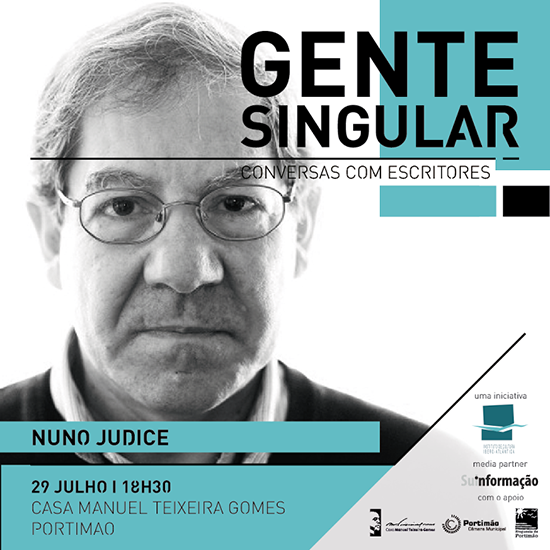 After the first “unique conversation” with Lídia Jorge, the Ibero-Atlântica Culture Institute (ICIA) will promote, next Friday, July 29, at 18:30 pm, at Casa Manuel Teixeira Gomes, the second conversation of the Gente Singular cycle.
After the first “unique conversation” with Lídia Jorge, the Ibero-Atlântica Culture Institute (ICIA) will promote, next Friday, July 29, at 18:30 pm, at Casa Manuel Teixeira Gomes, the second conversation of the Gente Singular cycle.
This time, João Ventura will talk to the poet, fictionist and essayist Nuno Júdice, born in Mexilhoeira Grande, about his latest book The Cellamare Conspiracy, the novel that brings the poet back to the territory of prose, he who, by default or convenience, we got used to arrange, in a prominent place, among those who keep Portuguese poetry alive and singular.
According to the note issued by the ICIA, the proposal for this second session will then be, with Nuno Júdice, walking through the corridors of the Cellamare Palace in Naples, passing by many of the distinguished guests who have passed through there – Caravaggio, Sade and Goethe , among others – and with countless small stories of their lives, in what is expected to be a literary and cultural journey through Europe of the last three centuries, interspersed with episodes, some real and some fictional, from the author's life, making the idea of being impossible in front of a historical novel, as, by the way, the author-narrator clarifies right at the beginning of the book: “My initial problem was that I didn't want to write a novel. It would be a mix of genres, between diary, memories and fiction…”
As João Ventura says, “the subversive motive of this literary conspiracy, in which Nuno Júdice wants to involve us as active readers, is the weaving of a subtle fictional exercise anchored in a Neapolitan setting with a historical background, unfolding in associations, crossings and bifurcations. real, sometimes imaginary, which the author uses to consummate his will to tell and tell himself, deconstructing the linear narrativity of the novel inherited from the XNUMXth century”.
"And because - João Ventura adds - in this book the author's digressions are constant around themes with historical background or real or invented biography, in addition to some genealogical and local history speculations that the fictional plot invites us to question, we will not leave to pull into this “unique conversation” some current themes that we find hanging in the (between) lines of this singular novel.
Nuno Júdice was born in Mexilhoeira Grande, Algarve, in 1949. He graduated in Romance Philology from the Universidade Clássica de Lisboa. He is an associate professor at Universidade Nova de Lisboa, where he received his doctorate.
He performed the functions of Cultural Advisor and director of the Instituto Camões, in Paris (between 1997 and 2004). Until 1999, he directed the magazine tobacco shop of Casa Fernando Pessoa.
In 2009, he took over the direction of the magazine Colloquium-Letters of the Calouste Gulbenkian Foundation.
He is the author of a vast work that encompasses poetry and prose. It has received the most important literary awards, both in Portugal and abroad. The most recent were the Reina Sofia Prize for Ibero-American Poetry (Madrid), National Heritage and University of Salamanca, in 2013, the Prize for Poetry del Mundo Latino (Universidade de Aguascalientes, Mexico) in 2014) and the Argana Prize by the Maison de la Poésie from Morocco, already in 2015.
















Comments